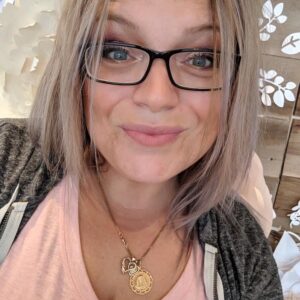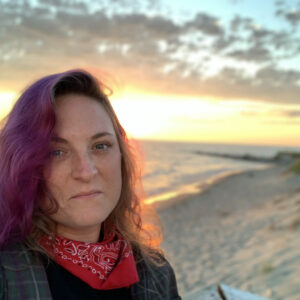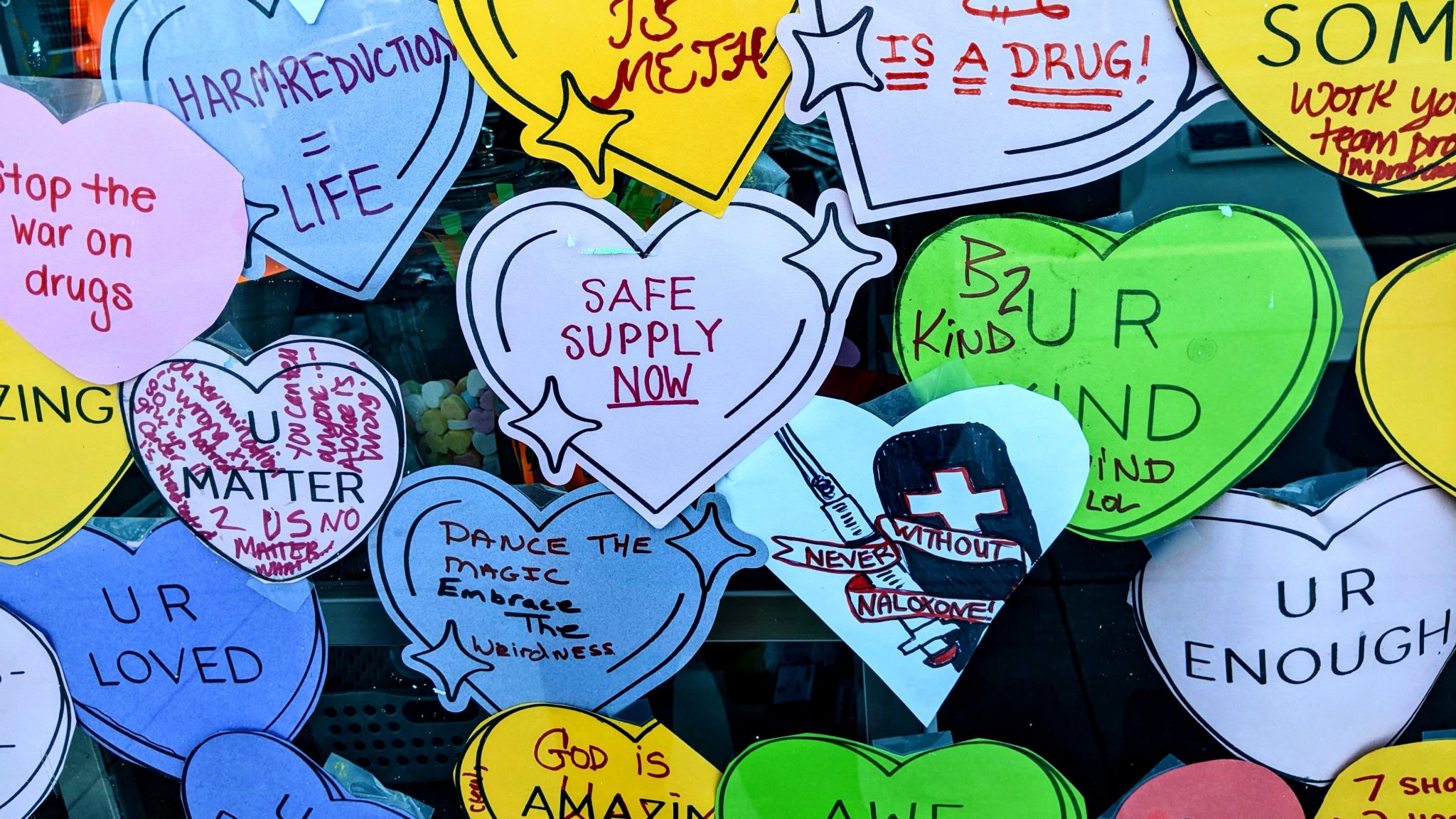Safer supply saves lives. It’s that simple. People who use and sell drugs have long known this, and academic research is catching up too—demonstrating that safer supply reduces mortality rates and improves quality of life.
As people who use drugs (PWUD), we denounce the unfounded critiques of safer supply by addiction medicine physicians like Vincent Lam, medical director of Coderix Medical Clinic in Toronto. We are the ones navigating the illicit drug supply daily. We are the experts. Arguments against safer supply are consistently inaccurate, pro-profit and rooted in fear and hate-based ideology.
Our lives are not a moral dilemma.
Both medicalized and non-medicalized models of safer supply are part of the continuum of harm reduction. As non-medicalized models are not authorized in our current legal framework, much of this work falls on health care providers. They must weigh the lifesaving benefits of safer supply against the potential professional inconveniences, like audits.
In a Globe and Mail op-ed, Lam wrote that prescribing safer supply goes against the Hippocratic Oath to “do no harm.” In fact, it’s done according to the same processes by which providers routinely prescribe antidepressants, painkillers or medications for opioid use disorder (MOUD)—taking informed, calculated risks using their clinical expertise, and consulting with their peers when needed.
Detractors like Lam claim their opposition has a moral basis. Indeed, some prescribers are concerned they risk moral injury by prescribing a medication they believe could cause harms such as overdose, or be diverted into the illicit market where it could potentially harm others.
But those who prescribe safer supply are often more concerned they risk moral injury by not prescribing a medication that could reduce overdose by helping a patient avoid the contaminated drug supply. And they know that diversion, while they must take precautions to prevent it, is shown to be an overall benefit to public health, rather than a harm.
The harm from not prescribing safer supply are much more severe.
At least 24,626 people on land occupied by Canada died of overdose between January 2016 and June 2021. And then there are all those who have experienced physical, emotional and social harms of non-fatal overdose. There’s the tremendous weight of grief that people are forced to carry.
The drug war has a stranglehold over our lives.
Not expanding safer supply means everyone will continue to suffer from the harms of the contaminated illicit supply. Harms created by the government and perpetuated by law enforcement and, of course, the health care system.
The drug war has a stranglehold over our lives. Stigma and judgment are ongoing. Criminalization is a constant threat. Infantilization and dehumanization permeate clinical settings. None of this is necessary; drug use can be safely managed.
To push—essentially force—PWUD to use the poisoned street supply is simply outrageous.
Methadone has had a monopoly on drug treatment for decades—something many methadone patients understand to be a primary obstacle to innovations in their care. Barriers to accessing MOUD clinics include suboptimal dosages, police surveillance, travel and transportation, long waitlists and structural racism.
Most of these methadone “juice bars” once offered at least services like voluntary counseling. Yet even the methadone giant Ontario Addiction Treatment Centers has cut back its services substantially. Safer supply programs, however, are embedded into wraparound primary care and social services.
We need to recognize the limitations of MOUD, including that the current prescribing thresholds offered at select federally funded programs just can’t match the potency of the illicit drug supply. MOUD patients will supplement with that supply when their medications don’t meet their needs.
Safer supply recognizes that. The current illicit supply is unpredictable and deadly, and the only way to keep people alive is to answer calls for a regulated alternative.
Regulatory colleges need to support prescribing guidelines developed in collaboration with PWUD, and support providers who offer safer supply rather than auditing them. Public officials and addiction medicine physicians must acknowledge the successes already employed by champions of safer supply, and stop deterring other prescribers from offering this federally endorsed lifesaving intervention.
We must also implement non-medicalized models.
Our government needs to address ongoing drug policy failures and take immediate action. Fair Price Pharma could already be supplying PWUD with regulated diacetylmorphine if British Columbia’s provincial government provided funding.
We must also implement non-medicalized models. The Drug User Liberation Front (DULF) could expand the provision of labeled, tested drugs directly to the community if the federal government issued the exemption DULF has requested.
Our communities need radical investments in the social determinants of health, including housing, health care, guaranteed basic income, education and employment. With these needs met, PWUD can rebuild the esteem that has for so many years been beaten down by the stigma we face at every turn.
We need to end restrictive criminal record checks that prevent employment and educational opportunities simply because of someone’s drug use.
We need PWUD to lead and operate programs centered in harm reduction and compassion.
Expanded safer supply, decriminalization, legalization and regulation of all drugs are the only way forward—the only way to save lives. We need to act now.
The following people are coauthors of this article:

Giulia Di Giorgio is the founder of Cape Breton Association of People Empowering Drug Users and program coordinator at the Ally Centre.

Nat Kaminski is the founder of Peel Drug Users Network and the cofounder and president of the Ontario Network of People Who Use Drugs.

Alexandra Holtom is a knowledge mobilization expert with the National Safer Supply Community of Practice and a lead editor at The Drug Hub.
All five coauthors are members of the Canadian Association of People Who Use Drugs (CAPUD), and settlers on unceded Indigenous lands.
Top photograph courtesy of Darcie Dark






Show Comments